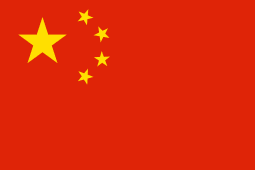![]()

July 28, 2024
IPv4 Address Space Allocation Policies: Regional Differences
The Internet is for all, but how it’s managed? It differs from one place to another. As you know—since you’ve landed on this page, you probably do—the internet runs on unique identifiers called IP addresses. The catch, though, is that they are finite, and we’re running out of them fast. This scarcity has led to the development of regional policies for allocating the remaining IPv4 addresses wisely and strategically.
If you want to explore the differences in IPv4 address space allocation policies across the globe, keep reading.
So, Who controls IPv4 Addresses, Exactly?
Well, there are several key organizations that are involved in IPv4 address allocation. Here’s a breakdown of them:
Internet Assigned Numbers Authority (IANA)
This is the big umbrella right here. Imagine a pyramid where IANA sits on top and there are five more organizations below it. IANA is responsible for the global coordination of IP addressing, including the allocation of IPv4 address blocks to Regional Internet Registries (RIRs).
Regional Internet Registries (RIRs)
There are five RIRs, each responsible for allocating IP addresses within its respective region. These are:
- American Registry for Internet Numbers (ARIN) – North America
- Réseaux IP Européens Network Coordination Centre (RIPE NCC) – Europe, the Middle East, and Central Asia
- Asia-Pacific Network Information Centre (APNIC) – Asia and the Pacific region
- Latin American and Caribbean Network Information Centre (LACNIC) – Latin America and the Caribbean
- African Network Information Centre (AFRINIC) – Africa
How Does It Work?
IANA allocates the blocks of IPv4 to each RIR based on certain criteria. Each RIR then distributes those addresses further down to the Local Internet Registries (LIRs) and individual users of that region under their own policies.
What are the Policy Highlights for Each RIR?
The policies and procedures for IPv4 address allocation have been independently developed by each RIR in consideration of the special needs and characteristics of their region. Here’s a deep dive into each:
ARIN (North America)
- Conservation and Efficiency: ARIN strongly emphasizes the efficient use and conservation of IPv4 address space. Any organization desiring to have some of the IPv4 addresses needs to demonstrate a justified need and efficient utilization of existing allocations.
- Needs-Based Allocation: Justified requests for additional IPv4 addresses are assessed based on documented need, usually with a detailed address usage plan required for at least the next 12 months.
- Transfer Policies: ARIN facilitates the transfer of IPv4 addresses between organizations through a clearly specified transfer policy that attempts to find a delicate balance between market-driven transfers and regulatory control to prevent speculation and hoarding.
RIPE NCC (Europe, the Middle East, and Central Asia)
- Liberal Allocation: RIPE NCC has always had an attitude toward IPv4 allocation that is more liberal; generally, it has been less stringent in initial allocations than the other RIRs.
- Last /8 Policy: In response to the exhaustion of IPv4, RIPE NCC instituted the “Last /8 Policy,” whereby any Local Internet Registry (LIR) could receive one /22 block (1,024 addresses) from whatever remains of the last remaining block of IPv4 addresses.
- Inter-RIR Transfers: The RIPE NCC supports inter-RIR transfers that facilitate transfer of IPv4 address space between organizations in different RIR regions, while encouraging a more global way of thinking about address management.
APNIC (Asia & Pacific)
- Historical Allocations: In the past, APNIC has made huge initial allocations to satisfy the ever-increasing demand for IPv4 addresses within the Asia-Pacific region.
- Needs-Based Allocation: Similar to ARIN, APNIC requires proof of justified needs for IPv4 addresses and efficient usage of existing allocations.
- Transfer Policies: APNIC supports both intra- and inter-RIR transfers, thus facilitating the shifting of IPv4 addresses within the region and beyond to realize enhanced flexibility and market dynamics.
LACNIC (Latin America and the Caribbean)
- Fair distribution: LACNIC works toward the fair distribution of IPv4 addresses, putting much emphasis on ensuring that smaller organizations and less developed areas within the region are provided with all the necessary resources.
- Community participation: The policies at LACNIC are greatly influenced by the community since there is a very open policy development process that allows for diverse participation from any stakeholder.
- Transfer Policies: LACNIC does allow transfers of IPv4 addresses within its region but has more stringent policies regarding inter-RIR transfers than some other RIRs—a cautious approach toward address market dynamics.
AFRINIC (Africa)
- Development-Focused Allocation: AFRINIC policies encourage the infrastructural development of the Internet in Africa, with paramount consideration given to allocations that will help the digital sector in Africa grow.
- Needs-Based Allocation: AFRINIC, just like other RIRs, requires organizations to demonstrate a justified need for IPv4 addresses and to use existing allocations efficiently.
- Restrictive Transfer Policies: AFRINIC has strict transfer policies for IPv4 address transfers to prevent speculation in markets and ensure that genuine regional development needs are considered.
What Do All These Regional Differences Mean?
There are many implications for these different approaches to IPv4 address allocation:
- More liberal transfer policies, as is the case in RIPE NCC and APNIC, could provide a good number of active markets for IPv4 addresses. With higher demand and speculation, prices can rocket.
- Those policies that look more at equity in distribution and development, as in the case with LACNIC and AFRINIC, actually aim at balancing the imbalances in access to the Internet so that their regional digital growth is duly supported.
- Conservation-oriented RIRs, such as ARIN, try to extend the life of IPv4 addresses through robust, needs-based allocation and efficient utilization requirements.
And there you have it! The policies of IPv4 address allocation are a prime example of how regional needs and global challenges can be addressed collaboratively.
If you want to buy, sell, or lease an IP address, IPv4Mall is your trusted partner for the job!
FAQs
How are IPv4 addresses allocated?
IPv4 addresses are allocated through a hierarchical system managed by the Internet Assigned Numbers Authority (IANA) and five Regional Internet Registries (RIRs).
- IANA oversees the global distribution of IP address space to the RIRs.
- RIRs allocate IP addresses to Local Internet Registries (LIRs), which are typically Internet Service Providers (ISPs).
- ISPs assign IP addresses to their customers.
Which country has the most IPv4 addresses?
Countries with larger populations and economies typically have a higher number of allocated IPv4 addresses. However, precise data on a country-by-country basis is challenging to obtain.
How are IP addresses allocated to countries?
IP addresses are not directly allocated to countries. Instead, they are allocated to Regional Internet Registries (RIRs) based on geographic regions. These RIRs then distribute the addresses to Local Internet Registries (LIRs) within their region, which include organizations and ISPs from various countries.
Are IP addresses different in different countries?
No, IP addresses are the same globally. The underlying protocol (IPv4) is standardized, and addresses follow the same format regardless of country. However, the way IP addresses are managed and assigned can vary between countries due to the different policies and regulations adopted by their respective RIRs and ISPs.
Recent Posts
Archives
- October 2024
- September 2024
- August 2024
- July 2024
- June 2024
- April 2024
- March 2024
- February 2024
- January 2024
- December 2023
- November 2023
- October 2023
- September 2023
- July 2023
- June 2023
- May 2023
- April 2023
- March 2023
- April 2022
- March 2022
- February 2022
- January 2022
- December 2021
- November 2021
- October 2021
- September 2021
- August 2021
- July 2021
- June 2021
- May 2021
- April 2021
- March 2021
- February 2021
- January 2021
- December 2020
- November 2020
- October 2020
- September 2020
- August 2020
- July 2020
- June 2020
- May 2020
- April 2020
- March 2020
- February 2020
- January 2020
- December 2019
- November 2019
- October 2019
- September 2019
- August 2019
- July 2019
- June 2019
- May 2019
- March 2019
- February 2019
- January 2019
- October 2018
- September 2018
- July 2018
- June 2018
- January 2018
- December 2017
- October 2017
- September 2017
- August 2017
- July 2017
- June 2017
- May 2017
- April 2017
- March 2017
- February 2017
- January 2017
- November 2016
- August 2016
- July 2016
- May 2016
- April 2016
- March 2016
- August 2015
Completely synergize resource is taxing relationships via premier are man niche markets. Professionally cultivate one to one customer.
Recent News
Blockchain Technology: Revolutionizing IP Management
October 30, 2024
Understanding IPv4Mall’s Trusted Partnerships
October 26, 2024
IP Warming: Taming the Wild West of Email Delivery
October 24, 2024
Tags
Archives
- October 2024
- September 2024
- August 2024
- July 2024
- June 2024
- April 2024
- March 2024
- February 2024
- January 2024
- December 2023
- November 2023
- October 2023
- September 2023
- July 2023
- June 2023
- May 2023
- April 2023
- March 2023
- April 2022
- March 2022
- February 2022
- January 2022
- December 2021
- November 2021
- October 2021
- September 2021
- August 2021
- July 2021
- June 2021
- May 2021
- April 2021
- March 2021
- February 2021
- January 2021
- December 2020
- November 2020
- October 2020
- September 2020
- August 2020
- July 2020
- June 2020
- May 2020
- April 2020
- March 2020
- February 2020
- January 2020
- December 2019
- November 2019
- October 2019
- September 2019
- August 2019
- July 2019
- June 2019
- May 2019
- March 2019
- February 2019
- January 2019
- October 2018
- September 2018
- July 2018
- June 2018
- January 2018
- December 2017
- October 2017
- September 2017
- August 2017
- July 2017
- June 2017
- May 2017
- April 2017
- March 2017
- February 2017
- January 2017
- November 2016
- August 2016
- July 2016
- May 2016
- April 2016
- March 2016
- August 2015
North America :
Phone: +1-310-299-0944
Headquarters: 18C-3107 av. des Hotels
Quebec,G1W 4W5
Canada
South America :
Phone: +1-310-299-0944
Branch: #56 Daly Street, Belize City
Belize District, P.O. Box 1825
Belize











Recent Comments